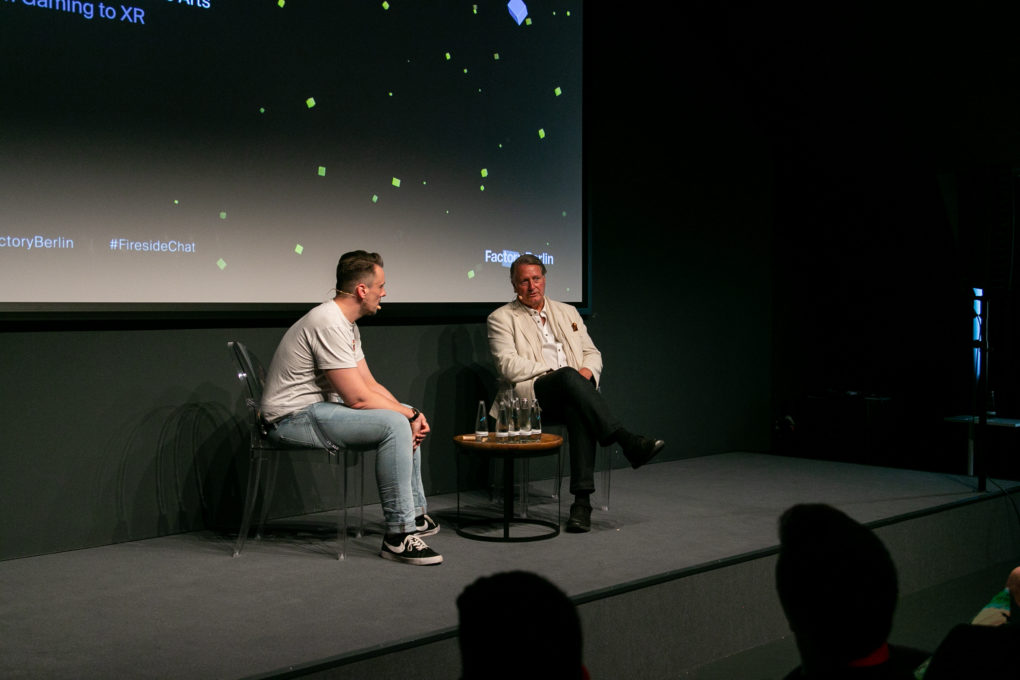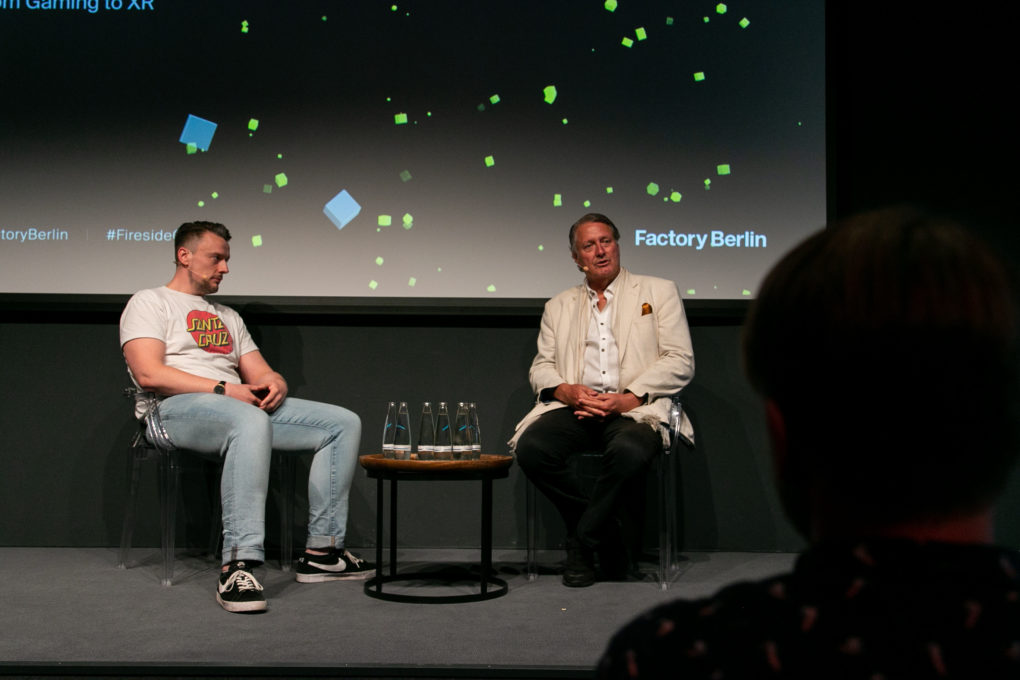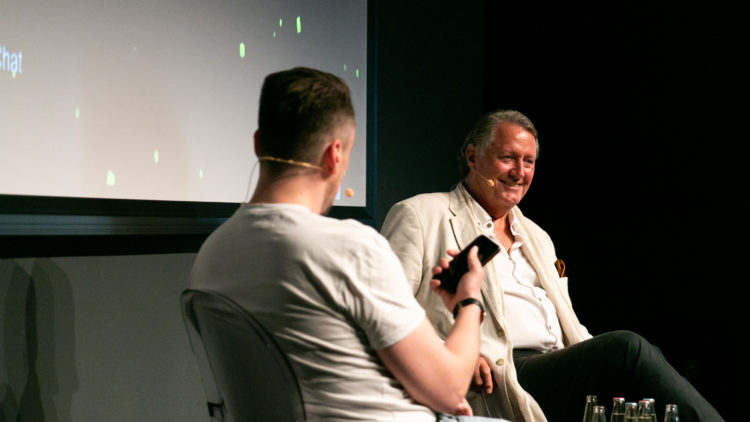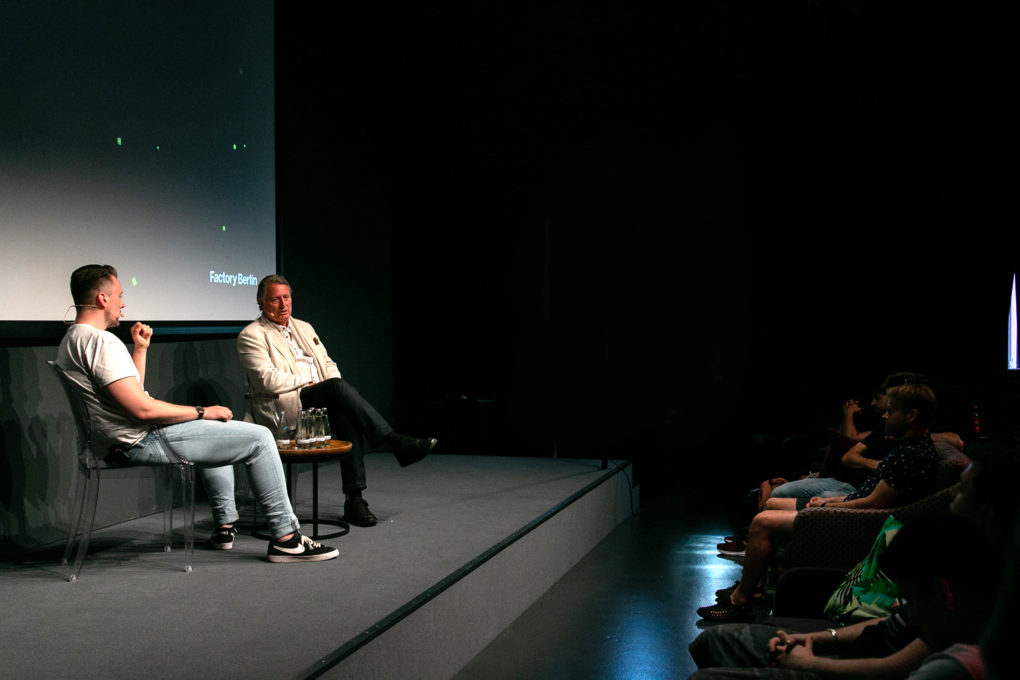
August 6, 2019
Jeff Burton: 5 Lessons From The Valley
The co-founder of gaming goliath Electronic Arts and an executive at Atari, Jeff Burton is a major player from 1970s Silicon Valley. At our Fireside Chat, he shared five lessons the Berlin ecosystem could learn from original startup culture.
1. Just do it
“I saw the spreadsheet that came from the Apple II computer and I immediately thought, ‘Oh my God! I’m in the wrong industry!’ So I quit my job and left my medical instrument business in southern California to work for Atari, which was managed by New Yorkers at the time.
I ended up not liking the atmosphere at the international division of Atari because the president was a jerk – a New York real-estate developer, Trump-like, nasty and short tempered, pushy – he didn’t really care about people at all. It didn’t fit the Bay Area style, nor the Silicon Valley way. When I said I was leaving to start a company with some software developer friends, he threatened me, bullied me. And, that’s just not the right kind of ethics. I desired more control, independence, more openness, more transparency in management style and structure. I also wanted to start something of my own in the valley.“

2. Develop a strong and inclusive work culture
Back in the late 1970s, there was a special culture in Silicon Valley that was already forming from startups like Sun Microsystems and Apple. Jeff and his founding partners at EA, realized the imperative to build a strong culture.
“With intent, we absorbed all that we could and then purposely set things into motion that we thought would help build the sort of culture we could be proud of. For example, for the first few years we had every employee interview every person for every job position. Once we hit 100 employees, that started to become a little bit impractical, but the nice thing about it was that it made our future employees feel like they already fit into the culture once they were hired. It made them feel like they were special after going through so many rounds, and it also emphasized their agency. It showed that their opinion matters. It was a privilege and a right. Even if they had no veto power, the power of opinion was influential enough to contribute towards building their company culture. Our attitude was that all employees should have a say.”

3. Be radical about your transparency
“We had weekly Friday meetings where there was no question too private to answer. That meant discussing topics dealing with salaries, expenditures, and decision issues with full honesty in front of the entire company.
As for hierarchy, there were some things that were just non-negotiable, but we made it clear which things were set in stone and why we placed that value on them. We were transparent about why these were important and the requirements, moreover, the responsibilities taken to make things work.“

4. There is no 'Game Over'
“I don’t know anyone who hasn’t failed. To understand why you failed might be more helpful, and you learn something, even though you have to start over. There’s an acronym that I even use: [F-A-I-L] First Attempt In Learning.“
“Here’s the one thing about gaming that I think a lot of people don’t understand, especially about some of the less strategic games: it teaches you to fail more than win – and we always fail more than we win. So, you just start the game all over. It’s a simple yet interesting tidbit for living your real life. If you are really into gaming and you understand that, then you keep on moving up the ranks and levels until you master it.“

“Gaming is practicing living.”
5. Use the power of networks
“My entry into the startup world was accidental. A lot of my ties from Stanford were in leadership roles at Apple (for example, Jeff Hawkins of PalmPilot) and Sun Microsystems and over a wonderful dinner party, we reconnected. It was all of these awesome people I knew, but I had never been closely associated with. They all had great ideas and it was so compelling to think about working with these exceptionally bright individuals who were experts in their field. I really liked the idea of getting a small group together and collaborating.“
“I got into the startup world because I went to a great dinner party”

These lessons from Jeff Burton outline five concepts ingrained into Silicon Valley culture that could be useful for the startup allee forming within the Berlin ecosystem. He reminds us that video games, whether in an augmented or true reality, have the ability to teach us life strategies, especially when it comes to dealing with failures.
To help boost your network to the next level, apply now to our curated community of experts. Factory Berlin’s community, events, and space facilitates interaction between all disciplines at all levels who embrace the power of innovative ideas.
To learn more lessons about organization culture, tech, and innovation, you can check out our upcoming event formats that happen once a month at Factory Berlin.

